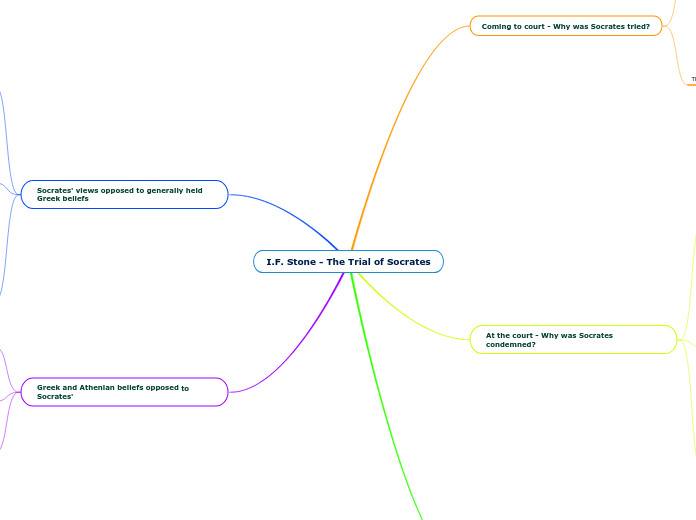Heritage Sectional Exam #2
Music
PITCH
represents the percieved frequency of a sound.
Music is the most abstract and sublime of all the arts. Its mysterious power led all ancient cultures it as having a divine origin.
INTERVAL
Distance between modes
MODE
we can tell where the music is from by the mode
It is the basic pitch material of music
a patterned arrangement
"Humanly Organized Sounds"
Ancient Music
Philosophy
Maimonides
Negaitve Theology
St. Augustine
Predestination is inevetiable because God is omniscient
But if predestination is inevetable then can there be free will? If not then what is salvation?
Time is a function of the mind
A life of rightly ordered love is the moral life
Sensation misleads; reason is the way basic truths are understood, not through faith
Faith is the first step
We believe in order to understand
Faith is insufficient
NeoPlatonism
Evil is a privation, a turning away, not a positive force
A Platonist at heart who believes in metaphysical and epistemological dualism of Plato
Neoplatonism
Each successive stage of being "emanates" from a higher one, but the emanitions do not undold in an external objective time
Emanations are metaphysical stages of being from One to Duality to Many
Language forces us to describe emanations as temporal
Emanations all at once
ONE=>Nouns (Thinker and Thought)=>Soul=>Matter
Plotinus (205-270 CE)
Manicheanism
Abstain from mirriage, because bodily urges prolong the powers of darkness
abstain from all "ensouled things"
eat only vegetables
humans are a mix of good and evil
through sustained activity of the mind, humans should recognize the duality of things
Two primal principles of good and evil, coeternal and independent
Persian idea handed down by zoroastrians
Philosophies of Coping
Stoicism
Desire the Inevitable
Universal Brotherhood
Determinism Vs. Free Will
Epictetus
"I told you it would break."
Skepticism
ATARAXIA
Quietude
We must suspend judgement
Just walk away if you don't know
For every "P" there is a "NOT P"
~(P&~P)
Law of Universal Contradiction
Pyrrho
Sextus Empiricus
Epicureanism
Cultivate Friendship
Pursue Pleasure with Friends
Not bodily pleasure
Atomistic Metaphysics
The Swerve
Democritus
Epicurius
The Obstacle to peace of mind is fear of death
Aristotle
Tutor to Alexander the Great
Missed the point of his instruction.
Potentiality to Actuality to Pure Actuality
We are beings of change: doing right is "flourishing well"
Morality (doing right) relies on the Polis
Morality comes from the polis?
Flourishing well is impossible outside the polis
Idiotes=The Quiet Man?=Idiot
Pure actuality=God=Pure thought thinking about itself=The uncaused cause of all change
Great chain of being
The scientist studies change and the cause
Final cause
A thing's Telos or purpose (a tiny platonic form)
Formal cause
the overall configuration of a thing
Efficient cause
the oomph, the push, the immediate local force of movement
Material cause
Substance of a thing
Parmenides and Heraclitus are Mistaken
Neither Metaphysical Monism or Pluralism
Wisdom=Happiness
Trying to explain causality
Plato
Reincarnation of the soul
DIALECTIC
intellectual assention to the Forms
Doctrine of Recollection
EQUAL STICKS ARGUEMENT from the Phaedo
knowledge demands permanence
Learning is merely remembering knowledge of the forms already present
Doctrine of the Forms
Real knowledge is not from sensation
Metaphysical and epistemological dualism
Two kinds of knowledge
Two Substances
Two worlds
"True friends share in all things"
How to reconcile differences between Heraclitus and Parmenides
Socrates
The trial and Death
The Apology
The problem of alcibiades: a corrupted youth?
Sicily Campaign
The ethical life and the social contract with the state
SOCRATIC METHOD
CONCEPTIONAL DIVISION
Pre-socratic Philosophers
Zeno
Paradoxes
Parmenides
No NOTHINGNESS
Math and reason tell us that change impossible
Change is an illusion
STATIC universe
everything is static
Heraclitus
LOGOS
listen to the logos
FLUX
"You cant step in the same river twice."
Fire is a metaphor for change
direct experience confirms that all is constantly changing
everything is in flux
Pythagoras
Some of his ideas probably come from persia and hence Zoroastrianism
Under the Babylonians the Hebrews would have been influenced bt the same ideas, hence emergence in Daniel of the concept of an afterlife
Dualism of mind and body
DUALISM
The condition or state of being dual or consisting of two parts;
twofold division; duality.
- A theory or system of thought which recognizes two independent
principles. spec.
- Philos. The doctrine that mind and matter exist as distinct entities;
opposed to idealism and materialism.
- The doctrine that there are two independent principles, one good and
the other evil.
The universe is composed of numbers
Anaximander
proposed that humans evolved from sea creatures who came to live on land
his stuff is an eternal apeiron responsible for all things animated by a kind of internal principle of justice
APEIRON
Boundless infinite substance
Anaximenes
AIR
his stuff was air animated by a principle of expansion and condensation
Thales
WATER
his stuff is water animated internally by a kind of soul
Passed on knowledge of mathematics
from Babylon
He predicted a solar eclipse
Subjects
Logic
Aesthetics
Ethics
Epistemology
Metaphysics
Bhagavad-Gita
Greek Drama
Euripedes
Medea (431 BCE)
DISCUSSION
EXILE
Reduction of Humanity
IDIOTES=PRIVATE MAN
SHAME
POLIS
Why does Euripides overturn his audience's expectations in creating this Jason and this Medea? What might he be saying about Athenian attitudes toward "Others?"
Is Medea justified in taking her revenge against Jason?
What role-if any-do the gods play in Medea's revenge? How do we know?
What evidence does Euripides give us in the play to answer this question?
The 2nd Scene between Jason and Medea
The goddess Peitho: Persuasion
What different track does Medea take here, and why?
Historical Context
The Athenian jury system
The radicalism of Athenian democracy
What might Euripides in the production of Medea, on the eve of the Peloponnesian War, be saying about to Athenians?
Peloponnesian Wars (431-404 BCE)
Persian Wars (c. 500-479 BCE)
The Argon
Who were the sophist philosophers in 5th Century BCE Athens?
The contest of words
Jason Vs. Medea
Whose arguement is more logical? Persuasive? Intelligent?
Pelias and the daughters of Pelias
Jason and the Argonauts
480-406 BCE
Chorus
Moderate Views
Clariifier
Ethical commentary
Tragic Performance at Athens
The Greater Dionysia (or City Dionysia)
Origins
Grove of Thespis
Dionysus
Virgil
The Aeneid
When is the Aeneid set? How are the Punic Wars Relevant
Fato- divine world order. Equivalent to Manifest Destiny
It was the destiny of Rome to take over Carthage.
In the third Punic War Rome destroyed Carthage
1200 BCE
What are the opposites of Augustan values?
Furor
Passion/Emotional
Burning Anger
Boiling Rage
Fury
Juno
Juno Loved Carthage
Hated the trojans, who were destined to found Rome and defeat Carthage.
What are the values of Augustan Rome?
Strength
Order
Command of Life and Death
Empire
Pietas
Devotion to
Roman Empire/Rome
Duty
Loyalty
Family
Gods
Dedication
Respect
Topic Questions
Virgil opposes pietas (piety) and furor (fury?)
Dido represents fuor (fury)
Passionate
Does it hold up all the way through the end of the poem?
Interpretation
Aeneas kills Turnus
Turnus was a supplicant
Rome was "born of violence"
Or Supplication was a greek thing looked down upon in Roman society
Medea supplicated Jason
But she was sarcastic
Jason Denied Her
Priam supplicated Achilles
Achilles agreed to give Hector's body back
Therefore it was wrong to kill him
Evidence of Furor
You can't deny a supplicant
The Romans appropriate Greek forms, and yet they make them their own
What does Virgil do with the epic form that is new in the history of literature or that is not "Greeky," but distinctly Roman?
Hero looks out for society, not himself
Written down first, not oral
How dies Virgil imitate Homer's epic?
Iliad
Differences
Aeneas is Pious whereas Achilles is Selfish
Selflessness
Aeneas is rational minded whereas Achilles is emotionally minded
Aeneas does not get angry in the same way
Righteous Wrath of Achilles
Predestination
Fate is above Gods
Gods can delay fate but not alter it
Influence of gods
Similarities
Contain hero and gods
What message does Virgil convey to Augustus about how to rule?
Propaganda?
Augustus is pious
"Augustus is doing well"
Dido relates to Cleopatra (African Queens)
Virgil is critiquing Augustan Rule
Imperium
Common Roman Values
Aeneas relates to Augustus
Art
Greek
Repetition in art is very greek
"Order as Beauty"
Roman
Helenistic
History
Rise of the Polis
Athens after the Persian Wars
Athens after Solon
Tririemes
Drawn from those to poor to be hoplites
Require 200 rowers
The Persian Wars
The Invasion of Xerxes (480 B.C)
He was agitated by the radical Athenian democrats
The Battle of Marathon (490 B.C.)
Trirenes
Naval Battle
Athens and other Greek City States Vs. Persians
Athens declares war on Persia in 499 B.C.
Democracy more radical
The Birth of Democracy (508/7 B.C)
594/3 -460 B.C.
Solon of Athens
A politician and statesman as well as a poet, he served as chief magistrate at a time when Athenian society was polarized between a small and wealthy aristocracy and a common people opressed by poverty and disenfranchisement.
Born 640 B.C and died c560 B.C,
Poem 2, pg 66, line 26, Community
"In this way public calamity comes to each man;s home, and the doors of the courtyard no longer can hold it back;"
Poem 2, pg 65, line 7, Moderation
"and the leaders of the people are unjust in mind. In their case it is certain"
Solon (594/3 B.C)
The Aristocratic regimes in Athens
Tyrtaeus of Sparta/Sparta
Poem 7, pg 18, line 1, Merit
"I would neither make mention of a man nor hold him in esteem"
Poem 5, pg 15, line 1, Community
"To fall and die among the fore-fighters is a beautiful thing for a brave man who is doing battle on behalf of his country;"
Poem 2, pg 14, line 9, Citizenship
"and that victory and power should attend on the mass of the people"
Tyrtaeus (c.650 B.C.)
Spartan poet. said to have written a poem on the spartan constitution. He was best known for the war poetry in which he exhorted Spartan soldiers to bravery in the field.
Spartan government
Archaic Greece
HOPLITE WARFARE
Demands for Change
Redistribution of land
Cancellation of debt
End of debt bondage
More open admission to office
Written laws
Community defends itself = Citizenship
Communal enterprise = Moderation
Hoplites identically armed = Equality
Ancestry irrelevant = Merit
Phalanx
Reinforces polis
700-650
UNDERMINING ARISTOCRATIC RULE
Change in warfare
Trade and cooperation creates new class with wealth, but no status
Poor more easily exploited
Greater exploitation of land
Population boom= Agricultural Intensification
Aristocratic rule over the polis
700-480
The Geometric Period
Orientalizing Trends
Sappho
Hesiod
Homer
Literature
Alphabet
Statuary
Pottery
Non Aristocrats
Can play clans off of each other
Can demand the loyalty of the aristocracy
Aristocrats
Can compete in larger arena
Can exploit the poor more easily
Collections remain small
Resources and population collected together
New Opportunities in the polis
c.900-700
Homeric Society
Achilles
Religions
Judaism
Distinguishing between Judaism and Christianity
Judaism considers calling Jesus "God" blasphemous.
Trinitarian Christianity is rejected as polytheistic and Christianity in general is rejectd since Judaism does not accept accept Jesus as the Messiah.
Judaism is a monotheistic religion that condems all forms of idolatry and rejects polytheism.
Although Judaism reconizes people of other religions can serve god and live according to god's laws, there are significant exceptions
Immortality
Although resurrection from the dead is part of Jewish doctrine, Judaism has focused upon a good life on earth and fellowship with god during the person's lifetime.
Judaism places less emphasis upon an afterlife than Christianity
Nature and the World
The historically negative attitude toward the body and nature as "profane" in christianity is not present in Judaism.
Unlike Christianity, judaism displays no animosity for the natural world. though god is supernatural, the world is nevertheless god's creation. part of the convenant with god is the responsible stewardship over this creation.
The Nature of God
This veneration of God by some jews is carried on to the extent that they will decline to write the word god and refrain from any naming of it.
In some interpretations however, God is a fundamental, unfathomable mystery. God is a verb, not a noun; a process, not a singularity; ultimately indescriable and incomprehensible to the human mind.
God is traditionally conceived as a personal God
Perhaps more importantly, god makes a covenant with the chosen, to protect, instruct, and show them compassion; in return the people upheld god's laws, worshiped, and show proper devotion.
The traditional characteristics of Monotheism reside in the god of the torah; god is endowed with omniscience, omnipotence, and omni-benevolence
Moses
By accepting god's commandments, the hebrews agreed to serve god exclusively; in return god would bring them to the promised land and make them a great nation.
Moses is the most important person in jewish history, as he is credited with the bringing of the children out of israel out of bondage in egypt(c.1300 BCE) and the covenant between god and his people was renewed under Moses.
Moses lived around 1200 BCE and introduced the commandments that are part of the torah.
The Torah
historically a conservative interpretation has prevailed
The Torah may be understood in conservative or liberal interpretations.
Liberal
The bible is the product of the interaction of god with his chosen people and a record of their understanding of God's revelation
Conservative
an accurate account of the history of the jewish people.
The bible is actual word of god and is thus without error.
although Moses is credited with the origin of the Torah, it seems to date 400 years after he lived.
The first five books of the old testemant comprise the Jewish Torah.
The jewish bible is actually a set of books; the most important of thise is the Torah
The Chosen People
Jews think of themselves as being chosen as the people responsible to God.
Central Doctrine
In contrast to christians who accept Christ as the Messiah, jews, by not accepting christ as devine, are still waiting for their Messiah.
The basic tenet of this religion is that god made a covenant with a group of chosen to demostrate God's requirements to the rest of humanity
Judaism encompasses some four millenia of development.
Christianity
In sum, worshippers are saved by grace through faith.
A person who is saved will live a morally exemplary life due to love of God and their fellow humans.
Good deeds in themselves are insufficient to guaruntee salvation; rather, good deeds may be evidence of repentance after a person is already saved
Christianity contends that only by accepting Jesus Christ as one's savior can one be saved through grace.
Only through the grace of god is salvation possible
Human Nature
Regarding human nature there is some division in christian views:
Both agree that God's grace is essential.
Another view holds that humans are capable of acting in keeping with both god's wishes and through proper nurture and devotion to god can live morally acceptable lives.
Some contend that humans are inherently sinful from the time of birth and can only overcome this with god's help.
Humans are viewed as created in "the image of god" and, unlike other creatures, have responsibility to god and are morally accountable.
The Sacred and the Profane
Historically Christianity has demostrated a certain antagonism toward the natural world as profane and therefore inferior, matter. This tendency has often times surfaced in historical Christianity as a negative attitude toward ohysical pleasure and the human body.
Christian thought is characterized by a certain duality that divides reality into the profane and the sacred.
Christ
It is claimed as the son of god, jesus made a willing sacrifice- through his cruxifiction- so that through his blood those that believed in him will be cleansed of sin. many christians view this sacrifice as an act of grace- a great gift bestwoed upon an undeserving humanity.
Jesus is veiwed as having been born of the virgin mary and living a morally exemplary life. He demonstrated his teachings by example, parable, sermons, and miracles
The most crucial beliefs in this religion:
God is believed to be manifest in three persons: Father, son, and holy spirit. this doctrine of the trinity is rejected by jews and muslims.
Jesus was resurrected from the dead on Easter Sunday
Jesus is conceived as both human and divine
as human, he is the man Jesus of Nazareth, but unlike any other humans, without sin.
as divine, he is the incarnation of god: he is the christ- god in human form
A monotheistic religion contending the most complete revelation of god was personified in Jesus of Nazareth.
Church Fathers from Rome to Byzantium
Jesus
Facets of Jesus
Healer
Heals the sick and raises the dead.
Revolutionist
Handyman
Compassionate
Friend, Mary M.
Teacher
Golden Rule
Angry
Temple/money changes, Hypocracy of Pharisees
Islam
Forms of Islam
Major divisions:
Shi'ite
Ali is the first imam. 'Ali's successos are the true imam
The imam is viewed as the spiritual leader of the community
Claim Muhammad announced 'Ali would be his successor
Sunni
Believe that the successor of the Prophet should be chosen by consensus of the Muslim community
Comprised of 85% of Muslims
The first division occured between Sunni and Shi'ites and persists to the present day
To compound difficulties , Muhammad had no son, so the question became whether the religion should be continue based upon Muhammad's lineage (closest relative) or be determined by the most spiritually qualiefied person
Since Muhammad appointed no clear- cut sucessor, after his death the Muslim community became divided on who should succed the Prophet
Religion and State
Subtopic
Religion and State are inseparable
The World
Islam is not opposed to science, for science is seen as an attempt to understand God's understanding
Islam views the world as good, a creation of God, there for humans to enjoy
Salvation
There is no need for Grace in Islam for human actions cary merit, God's mercy, and His goodness
Muslims believe that on the Day of Judgement humans will be resurrected and judged by God
A person must live up to the requirements of the Qur'anm fulfill their religious duties and obligations, and refrain from prohibited actions
Islam has a clear belief of Heaven and Hell and the appropriateness of a person's logos
If they are to be accepted by God, Muslims must follow a very straight-forward and clear-cut system of ethics
Islamic Attitudes toward other religions
Most notably, Islam rejects as Idolatry the Christian notion of the trinity and denies any divine element in the person of Jesus. Jesus and Muhammad are seen as both mortal humans who were chosen by God to deliver a certain message
Muhammad is viewed as bringing God's final revelation to humanity and as such the Qur'an supersedes the authority of the Buble and the Torah
Islam regards Jews and Christians as people of the book
Since Abraham and Jesus are recognized as prophets of the same God as Muhammad's Allah
Religious Requirements
Monotheism
There is no God but God
Fasting
Ramadan
Almsgiving
Pilgrimage (Hajj)
Daily Prayer
Sources of Islam
The Sunna is thought to be an authentic record of Muhammad's actions and decisions on moral matters without clear scriptiural instruction. This provides a morally exemplary example for all followers of Islam
The Qur'an is thought to be the direct revelation of God through his messenger Muhammad
Devout Muslims believe that it is impossible to translate the Qur'an from Arabic
It loses its beauty/impact in translation
Thought to be the Miracle of Islam
Argued that it was impossible for Muhammad (who was an illiterate, uneducated shepard, to have composed prose of such prodound beauty, wisdom, and sublime nature
Islam allows for belief in Angels and the personification of evil
The Divinity of Jesus is explicitly rejected by Muslims , as is the Trinity
Although Moses and Jesus are also recognized as prophets, Muhammad's message is thought to be God's final revelation
Muhammad is God's messenger
Muhammad
Died 632 CE
He started his quest to unite the tribes of Arabian under Islam in 622.
Converted many polytheistic tribes to Islam
First Revelation in 610 CE
Born in Arabia in 570 CE
Shortly after the Byzantine Empire peaks under Justinian (527-65)
Strict Monotheism
There iis no God but God (Allah)
Dichotomy
1. Division of a whole into two parts.
a. spec. in Logic, etc.: Division of a class or genus into two lower
mutually exclusive classes or genera; binary classification.
b. gen. Division into two. Something divided into two or resulting from
such a division; something paradoxical or ambivalent.
HADITH
important tool for understanding the Qu'ran
JIHAD
"Holy War"
Fight
till persecution ends
Strive
"Struggle"
"Was Islam spread by the Sword"?
Is Islam considerd a peaceful religion? When answering this question it is important to understand which professor you are writing from. Professsors like Ammon and Smith would are you that Islam is not any more violent than chirstianity was while Paxman would like to know the exact history of Islam and expect an answer to come from an analysis of this history.
Islam born into a conflictual environment, Mecca 610 CE.
Hinduism
Reincarnation
The end goal of the process of reincarnation is final and complete union with Atman
Depending on the form that Hinduism takes, even animals can be revered as sacred
Ideally one progresses through many cycles of reincarnation and is reincarnated into higher forms each successive time
The Jiva
One's essence after death' it is also that which preserves through various cycles of reincarnation
The surviving personal part in enlightenment; the personal soul
Present condition determines future lifetimes
The balance and ratio of the two in a previous life determines an individual's present condition
Humans have free will and moral responsibility for their decisions and, as a result of those decisions, accumulate good and bad karma
describes a moral universe with a moral law of cause and effect
The total difference between good and bad deeds
One's present condition is a reflection of one;s virtue in previous lifetimes
Stages of Life
Sannyasin - liberation - contemplative detachment - wondering monk
Retirement - 30 years or older - grandchildren
true education : yoga
Householder - 20 years or older - mirage and family
trancends wants
Student - 10 years or older - religious education
Yoga
A 5th type of, Hatha yoga, focuses on gaining control over bodily processes and desires
Ultimately all yoga is a process of rejection of ego/self.
Types of Yoga
Raja
Steps
Nirvana - liberation of enlightenment
Object disappears; veil of Maya is lifted; thinking of "no being"
Atman facing Brahman: subject - object relationship
Control of mind
Control of senses
Conquering breathing mechanisms
Eliminating physical distractions
Social obligations conquered
Eliminating bodily addictions
Through psychological exercise for the royal experiment.
Jinana
Through knowledge, for the reflective or intellectual
Karma
Through work, for the active individual
Bhakti
Through love, for the emotionally inclined person
Paths to the goal of life is different because people have different personalitys
the four types of personalities are emotional, reflective, active, and experimental
Each of these types requires a different yoga
A method of achieving enlightenment
Purpose of Religion
Maya (god) is the veil of illusion that makes people think they are seperated from Brahman
The purpose of life is to reunite the Atman and Brahman
The part of God in each human being is the Atman
The human being is a body, a personality, and Atman - Brahman(God Head), (the soul)
Detachments and indifference to the misfortunes of life is essential
The road to liberation is religion; success and wealth are self defeating pursuits.
Historical developmen
Vedas to Upanishads to Mahabharata to Bahavad Gita
Religion began with philosophy
Central Doctrine
Hindus accept that
What humans really need are Being, Awareness, and Liberation/Joy
There is a limitation on Being: Death
There are limitations to awareness: Ignorance is in all its manifestations
There are limitations to Joy and happiness, including: pain, boredom, frustration, and finitude
Material goods and comforts are finite
Someday humans will become aware they are finite.
Humans are icapable of being satisfied
Success is limited and exclusive
Paradox of human nature is the desires, wants, and needs of humans are infinite, yet humans themselves are part of the finite (limited by their mortality). The conflict between our infinite wants and our finite being is the source of human distress and suffering
Contrasts western religions which believe God is supernatural and seperate from the world. Hindus believe that God is everything and is infinite, a view called Pantheism.
A polytheistic religion with many gods and goddesses which express the the infinite Brahmin
Buddhism
Historical Developments
Buddhism developed into various branches depending on various groups’ interpretations
Tibetan Buddhism
Tibet
Daili Lama
Chen (Zin) Buddhism
Japan
Zen
Theravada Buddhism
Nirvana is achieved through wisdom and a full time preoccupation with enlightenment and religion
Mahayana Buddhism
The way to enlightenment is through the heart and wisdom gained in the absence of self-seeking desire
Humans need not make religion a full time preoccupation
There are virtues of grace that “the one” helps with
The individual is dependent on others and is part of the “One”
Four Noble Truths
The Truth of the Path Leading to the Cessation of Suffering
Liberation: Emancipation from the cycle of birth and death via the Eight-fold Path
The Eight-fold Path
The Noble Eightfold Path
Right Absorption: Raja Yoga (meditation and self-control)
Right Mindfulness: we are what we think; we must think correctly
Right Effort: Exhibit proper ambition and restraint
Right Occupation: Be a moral businessperson and promote life
Right Behavior: Proper conduct is essential
Right Language: Speech indicated the character and personality; by changing speech patterns, character can be transformed
Right Aspiration: To know what is wanted
Right knowledge: Meaning of 4 Noble Truths
The Truth of Cessastion of Suffering
Overcoming selfish desires (Manifoldness): Overcoming the dislocation of self (being off centered) and self-centered emotional and physical cravings
The Truth of the Origen of Suffering
The Cause of Dukkha is Tanha, psychological attachment to worldly things and aspirations
The Truth of Suffering (dukkha)
6 Types of Dukkha
Trauma of Birth
Pathology of sickness
Morbidity of Decrepitude
Phobia of Death
Incurable Disease
Separation from loss of love
Life is discontentment and suffering. The world is an illusion and because we do not understand it, we become fixated on various desires and attachments causing us to become frustrated and suffer. Suffering ceases when the illusion of Maya is eliminated through “awakening” or enlightenment
Departure from Hinduism
The Buddha taught it was not necessary to cycle through many lifetimes of reincarnation in order to reach Nirvana, one could reach Nirvana in one lifetime.
By departing from these six aspects of religion as practiced in Hinduism, Buddhism became a separate religion
In India, over the next 500 years, Buddhism became re-absorbed into Hinduism
Seven Points of Proper Religion
In contrast to the six aspects of improper religion, the Buddha taught that correct religion had seven features
Individualistic: Humans should seek relgious salvation
Democratic: Total rejection of caste system, classicism, racism, etc
Psychological: All suffering and negative aspects of human nature originated with a specific cause, which over time has become blurred and distorted
Therapeutic: Cessation of suffering
Pragmatic: Rejection of speculation and theology
Scientific: Discover cause and effect relationships regulating nature
Empirical: direct experience of true knowledge
Consequently, he taught that six traditional aspects of religion divert and distract people from the path to enlightenment.
Dogma
Dogmatic doctrines, mysticism, superstition, and supernatural beliefs should be eliminated from religion
Autonomy
Individuals should count on themselves and not become dependent upon God as an emotional crutch
Tradition
Has no logical useful function and should be rejected
Speculation
Intellectual speculation about unanswerable questions and the unknown is useless
Ritual
Senseless, repetitious ceremony originating as magic and superstition, ritual becomes more important than religion, leading to idolatry
Authority
This monopolization led to religious corruption and oppression
The Buddha sought to eliminate the caste system of India; specifically he taught that the Brahmin caste made religious knowledge privileged property, thereby making the other castes feel inferior.
Tends to be concentrated in the hands of a few; jurisdiction over religious knowledge is carried to the point of abnormality
Siddhartha Gautama
The Buddha was historically an Indian prince named Siddhartha Gautama of the Sakyas class
The Awakening
After a six year spiritual quest, he became enlightened at age 35. From there, he took the name of “the Buddha” meaning awakened one.
Hence Buddhism is the religion of spiritual awakening
Eventually he was confronted with the spectacles of age, disease, and death. These sights disturbed him and set him on his quest for spiritual enlightenment.
After years of strict asceticism and nearly dying of starvation, he concluded that asceticism was not the proper path; henceforth, he advocated the Middle Way—a life of physical moderation
At the age of 29, he left the palace and became a wandering ascetic
iHe was born in 563 BCE and was shielded from the differing in the world by his father.
Basic Concepts
Dharma: refers to the legacy of Buddhist teaching or scripture, the way of the Buddha
It emerged in opposition to the violence, suffering and inequality he witnessed in Indian society. Siddhartha felt that war, animal sacrifices, and the caste system ( which ranked members of Indian society by heredity) all undermined peace and degraded life.
Karma: The law of Karma has no influence on the Arhat; since the Arhat are completely detached and desire nothing, the laws of nature no longer affect them.
Metaphysical speculation: The Buddha claimed that the Jiva does not exist as a personal soul. Enlightenment, Nirvana, and Atman are all concepts beyond ordinary human consciousness
Arhat: a person who desires nothing and is beyond ordinary human consciousness
Nirvana : the highest destiny of the human spirit, a condition beyond enlightenment; literally means to "bow out"









